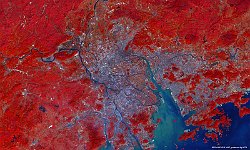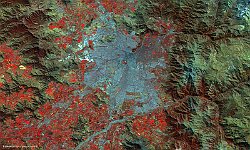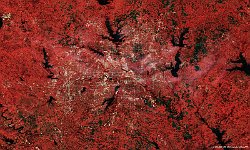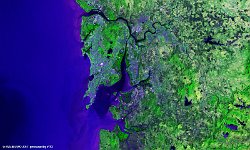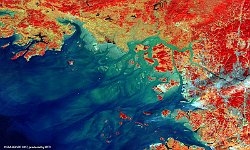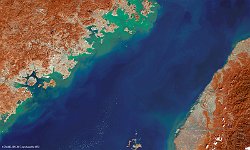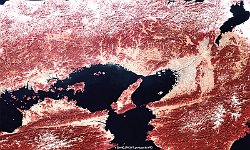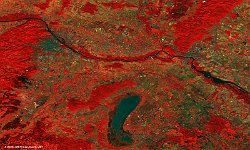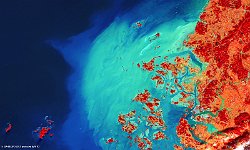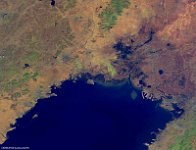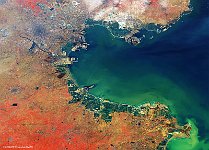23 / 52
Mumbai, India
Since 1989, UN World Population Day - on July, 11th - is a day to pay attention to the urgency and importance of population issues. This year’s theme is “Family Planning: Empowering People, Developing Nations.”
One of the world’s largest agglomerations is Mumbai, India, with an estimated population of 22 million. The city’s area first consisted of seven islands that were part of the kingdom of Ashoka and were of Portuguese and Brittish territory from the 16th century onwards, before India becoming independent in 1947. The seven islands were merged into one landmass in 1845, enabling the construction of India’s first railroad connection in 1853.
The 100 m image of 23 March 2017 shows the Mumbai agglomeration, with the city of Thane located to the east and the green appearance of the Sanjay Gandhi National Park, located north of Mumbai.
Date: 23/03/2017
Resolution: 100m

